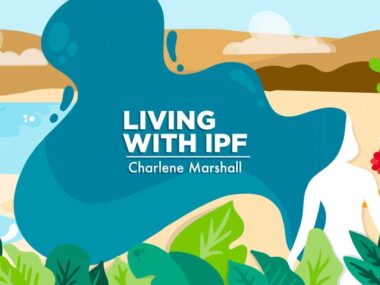The high costs of living with IPF and other rare diseases
More assistance is needed to help patients with the financial burden
Written by |

Living with a rare disease is expensive. While I agree with the cliches that “money can’t buy happiness” and “time is more valuable than money,” the limited financial aid available to patients stresses me out.
When I was diagnosed with idiopathic pulmonary fibrosis (IPF) in 2016, I wasn’t thinking about the expenses that’d be involved. Although IPF is a progressive and life-threatening lung disease, I lived well with it for the first couple years. I hadn’t yet noticed the shortness of breath, dry cough, or extreme fatigue that I was told I’d experience. It wasn’t until I had my first exacerbation that I began to deal with symptoms, and I was suddenly faced with more costs as a result.
In 2018, I wrote a column about needing help maintaining my home. Cutting the grass, shoveling snow, and tending to the gardens was too difficult for me while on supplemental oxygen, but getting help involved additional expenses. Once I returned to work following that initial exacerbation, I was able to manage these extra costs by developing and sticking to a budget.
While lung transplantation can help prolong and improve quality of life, there’s no cure for IPF. The goal, typically, is to manage symptoms and slow progression of the fibrosis (or scarring). Fast forward to today, when though my disease has progressed, I thankfully have a dedicated team helping me manage it. Unfortunately, my ability to manage IPF effectively depends on finances.
High costs can be a barrier to care
Even with supplemental oxygen, I’m still working full time and doing extra work for additional income. Although I stick to a budget, sometimes medical expenses are out of reach without financial assistance.
Recently, I made the difficult decision to stop using a biologic medication that was intended to help reduce my shortness of breath. This drug is relatively new to the market, and while it’s unclear if the medicine benefits those with IPF, there’s a lot of evidence saying it can be helpful for those with asthma — a condition I’ve had since I was young. I wasn’t on the biologic long enough to assess whether it was effective for me, but unfortunately, I can’t afford to keep taking it.
I’m grateful that a patient support program assisted me with a portion of the cost and that my employee benefits covered part of it as well. But even the remaining amount was too much for me. This biologic costs more than $3,000 per month, and while I wish I could’ve given it a longer trial, the expense was prohibitive.
After eight years of living with IPF, the financial burden is one of my main sources of stress. Unfortunately, a lot of people don’t think about this issue unless they’re forced to, so I want to raise awareness about the high costs associated with rare diseases. Whether it’s the price of medications, added homeownership costs, or other expenses, there isn’t enough financial aid support for those of us with rare conditions.
I’m going to start a discussion about this topic in the Pulmonary Fibrosis News Forums. Hopefully, others can share financial aid or assistance options for people to reference. If you know of such resources, you’re welcome to share them in the comments below.
Note: Pulmonary Fibrosis News is strictly a news and information website about the disease. It does not provide medical advice, diagnosis, or treatment. This content is not intended to be a substitute for professional medical advice, diagnosis, or treatment. Always seek the advice of your physician or other qualified health provider with any questions you may have regarding a medical condition. Never disregard professional medical advice or delay in seeking it because of something you have read on this website. The opinions expressed in this column are not those of Pulmonary Fibrosis News or its parent company, Bionews, and are intended to spark discussion about issues pertaining to pulmonary fibrosis.







John Fromularo
Really good story. Costs are real and extra help is required. Where did you get the biologic? Doctor prescribed?
Derek
I was diagnosed in 2017 and have experienced much the same in my journey with IPF. It is heartbreaking tp hear how money is such a barrier to life saving treatment and quality of life.
I live in Australia and all my treatment is free through the public health system. I started on Esbriet and whilst around the world people were paying upwards to $10,000 per month my outlay was $7.50. I am on other medication for heart, gout etc. And once I reach a personal outlay of $278.00 all my prescription medications are free. I live in the country and because I'm far from a city, health professionals travel to see me in my home.
I am so grateful for our heath care in Australia. It is my sincere prayer that governments around the world would provide the best care to their citizens regardless of their financial circumstances especially when faced with life threatening diseases. Just a.small percentage of the amount spent on military expenses could go a long way to addressing this need.
You are to be commended for your resilience and positive outlook. I am sure it is encouraging to many others. You sure have encouraged me and made me acutely aware of how privileged I am and how thankful I am.
Thank you
Susan
The Patient Advocacy Foundation is one place for financial assistance. They helped me with the $3,052 a month copay for Ofev. In my specific case a grant of $9000 was hugely instrumental in my even being able to start the drug.
Chris Woolsey
Charlene,
How did the Dupixent work for you, or was that the drug you mentioned as too expensive?
Thanks,
Chris